Protecting your skin from harmful UV rays involves far more than just applying sunscreen; it begins right on your plate. Scientific research increasingly highlights the vital role that nutrition plays in reducing the risk of skin cancer. A key review published in the Journal of Skin Cancer underscores how dietary antioxidants from whole foods may help prevent UV‑induced DNA damage and the onset of non‑melanoma skin cancers. Certain foods rich in antioxidants, vitamins and nutrients, such as tomatoes, carrots, leafy greens, berries, nuts, seeds, and fatty fish, help neutralise free radicals, support skin repair and bolster natural defence mechanisms. With the right diet, your skin becomes more resilient to sun damage, inflammation and oxidative stress.
10 nutrient-rich foods to lower the risk of skin cancer
1. Tomatoes
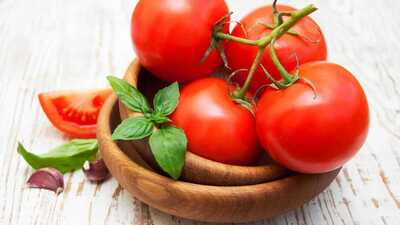
Tomatoes are one of the best dietary sources of lycopene, a powerful antioxidant known for protecting the skin against UV radiation. Studies suggest that regular consumption of tomatoes, especially cooked, can increase the skin’s resistance to sunburn and reduce long-term sun damage. Lycopene accumulates in the skin, helping to neutralise free radicals generated by UV exposure. For maximum benefit, consume tomatoes with a healthy fat like olive oil to boost absorption.
2. Carrots
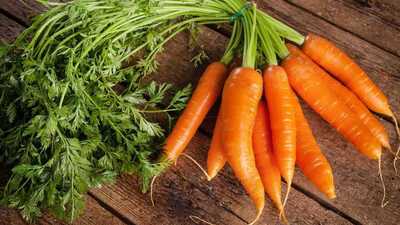
Carrots are rich in beta-carotene, a plant compound that your body converts into vitamin A, a nutrient essential for skin cell repair and regeneration. Beta-carotene helps protect the skin from sunburn by acting as a natural internal sunscreen. High levels of this antioxidant may enhance your skin’s tolerance to sunlight over time.
3. Sweet potatoes
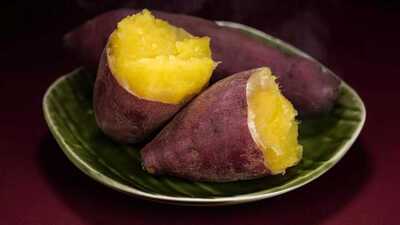
Like carrots, sweet potatoes are another top source of beta-carotene. Their rich orange colour signals a high antioxidant content that helps fight oxidative stress caused by UV rays. Eating sweet potatoes regularly supports skin elasticity, cell turnover, and protects against inflammation linked to sun exposure. They’re versatile in soups, roasts, or even as a base for nutrient-packed salads.
4. Leafy greens
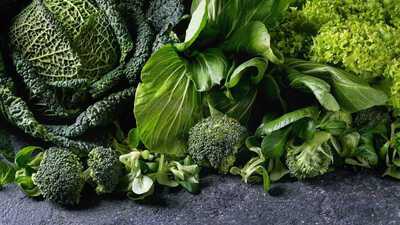
Dark leafy greens such as spinach, kale, Swiss chard, and collard greens contain a range of skin-protective nutrients. They are rich in lutein, zeaxanthin, vitamin C, vitamin A, and folate, all of which help repair skin damage and improve resilience against UV light. These greens also contain chlorophyll, which may have additional detoxifying effects. Add them to smoothies, salads, or stir-fries to benefit your skin and overall health.
5. Berries
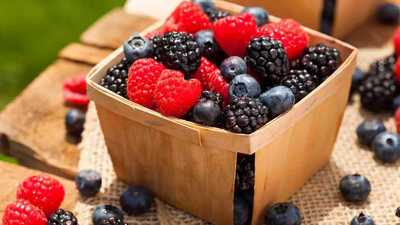
Strawberries, blueberries, blackberries, and raspberries are loaded with antioxidants, particularly vitamin C and anthocyanins. These compounds support collagen production, fight inflammation, and protect skin cells from oxidative damage that can lead to skin cancer. Vitamin C is also crucial for healing and maintaining the skin barrier. Berries make for a perfect snack or a vibrant topping on porridge, yoghurt or smoothies.
6. Citrus fruits
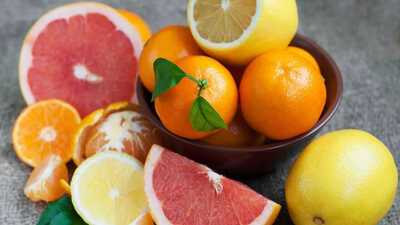
Oranges, lemons, grapefruits, and limes provide high levels of vitamin C and flavonoids like hesperidin and naringenin, which offer protection against UV-induced skin damage. Regular consumption of citrus fruits can help repair damaged skin tissue and support immune function, a critical factor in cancer prevention.
7. Fatty fish

Salmon, sardines, mackerel, and trout are rich in omega-3 fatty acids, which have powerful anti-inflammatory properties. Omega-3s help maintain the skin’s lipid barrier, reduce redness, and protect against UV-induced inflammation. They also support healthy cell membranes and overall immune function. Including fatty fish in your diet 2-3 times per week can significantly benefit your skin’s defences.
8. Nuts and seeds
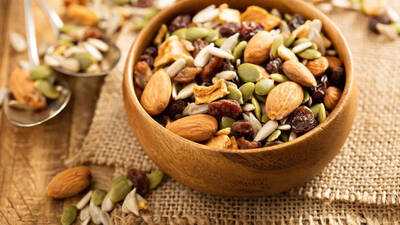
Nuts like almonds, walnuts, and Brazil nuts, as well as seeds like flaxseeds and sunflower seeds, offer a wide range of skin-protective nutrients. They are high in vitamin E, an antioxidant that protects skin cells from free radical damage. Brazil nuts are particularly rich in selenium, which has been linked to a lower risk of skin cancer.
9. Green and black tea
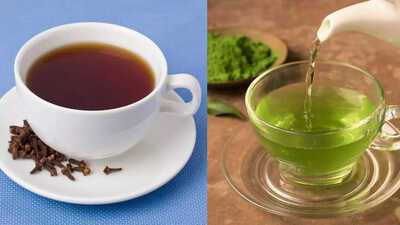
Both green tea and black tea are packed with polyphenols, especially EGCG (epigallocatechin gallate), which help repair DNA damage caused by UV exposure. These compounds may also inhibit the development of skin cancer by preventing abnormal skin cell growth. Aim for 1-3 cups a day to benefit from their protective effects, hot or iced.
10. Whole grains and legumes
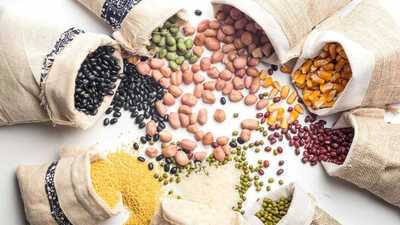
Whole grains like quinoa, brown rice, and oats, along with legumes such as lentils and chickpeas, contain vital minerals like zinc and selenium. Zinc supports DNA repair, helps maintain healthy skin structure, and plays a role in immune function- critical for cancer prevention. Legumes also provide fibre, which supports overall health and detoxification.
Disclaimer: This content is for informational purposes only and is not a substitute for professional medical advice. Always consult your healthcare provider before making dietary or lifestyle changes related to cancer prevention.
Also read | Arjun Chaal benefits for heart health and control blood pressure naturally
10 nutrient-rich foods to lower the risk of skin cancer
1. Tomatoes
Tomatoes are one of the best dietary sources of lycopene, a powerful antioxidant known for protecting the skin against UV radiation. Studies suggest that regular consumption of tomatoes, especially cooked, can increase the skin’s resistance to sunburn and reduce long-term sun damage. Lycopene accumulates in the skin, helping to neutralise free radicals generated by UV exposure. For maximum benefit, consume tomatoes with a healthy fat like olive oil to boost absorption.
2. Carrots
Carrots are rich in beta-carotene, a plant compound that your body converts into vitamin A, a nutrient essential for skin cell repair and regeneration. Beta-carotene helps protect the skin from sunburn by acting as a natural internal sunscreen. High levels of this antioxidant may enhance your skin’s tolerance to sunlight over time.
3. Sweet potatoes
Like carrots, sweet potatoes are another top source of beta-carotene. Their rich orange colour signals a high antioxidant content that helps fight oxidative stress caused by UV rays. Eating sweet potatoes regularly supports skin elasticity, cell turnover, and protects against inflammation linked to sun exposure. They’re versatile in soups, roasts, or even as a base for nutrient-packed salads.
4. Leafy greens
Dark leafy greens such as spinach, kale, Swiss chard, and collard greens contain a range of skin-protective nutrients. They are rich in lutein, zeaxanthin, vitamin C, vitamin A, and folate, all of which help repair skin damage and improve resilience against UV light. These greens also contain chlorophyll, which may have additional detoxifying effects. Add them to smoothies, salads, or stir-fries to benefit your skin and overall health.
5. Berries
Strawberries, blueberries, blackberries, and raspberries are loaded with antioxidants, particularly vitamin C and anthocyanins. These compounds support collagen production, fight inflammation, and protect skin cells from oxidative damage that can lead to skin cancer. Vitamin C is also crucial for healing and maintaining the skin barrier. Berries make for a perfect snack or a vibrant topping on porridge, yoghurt or smoothies.
6. Citrus fruits
Oranges, lemons, grapefruits, and limes provide high levels of vitamin C and flavonoids like hesperidin and naringenin, which offer protection against UV-induced skin damage. Regular consumption of citrus fruits can help repair damaged skin tissue and support immune function, a critical factor in cancer prevention.
7. Fatty fish

Salmon, sardines, mackerel, and trout are rich in omega-3 fatty acids, which have powerful anti-inflammatory properties. Omega-3s help maintain the skin’s lipid barrier, reduce redness, and protect against UV-induced inflammation. They also support healthy cell membranes and overall immune function. Including fatty fish in your diet 2-3 times per week can significantly benefit your skin’s defences.
8. Nuts and seeds
Nuts like almonds, walnuts, and Brazil nuts, as well as seeds like flaxseeds and sunflower seeds, offer a wide range of skin-protective nutrients. They are high in vitamin E, an antioxidant that protects skin cells from free radical damage. Brazil nuts are particularly rich in selenium, which has been linked to a lower risk of skin cancer.
9. Green and black tea
Both green tea and black tea are packed with polyphenols, especially EGCG (epigallocatechin gallate), which help repair DNA damage caused by UV exposure. These compounds may also inhibit the development of skin cancer by preventing abnormal skin cell growth. Aim for 1-3 cups a day to benefit from their protective effects, hot or iced.
10. Whole grains and legumes
Whole grains like quinoa, brown rice, and oats, along with legumes such as lentils and chickpeas, contain vital minerals like zinc and selenium. Zinc supports DNA repair, helps maintain healthy skin structure, and plays a role in immune function- critical for cancer prevention. Legumes also provide fibre, which supports overall health and detoxification.
Disclaimer: This content is for informational purposes only and is not a substitute for professional medical advice. Always consult your healthcare provider before making dietary or lifestyle changes related to cancer prevention.
Also read | Arjun Chaal benefits for heart health and control blood pressure naturally
You may also like

'Allow extra time for commute': Indigo issues travel advisory amid heavy rains in Mumbai; asks passengers to plan ahead

Food influencers 'forever changed' after car crashes into restaurant while filming review

Kissht's IPO Voyage, The Coworking Wars & More

Surprising item the Royal Family labels before travelling and why you should too

PM, CMs, Ministers to be removed after 30 days in custody under new bills







